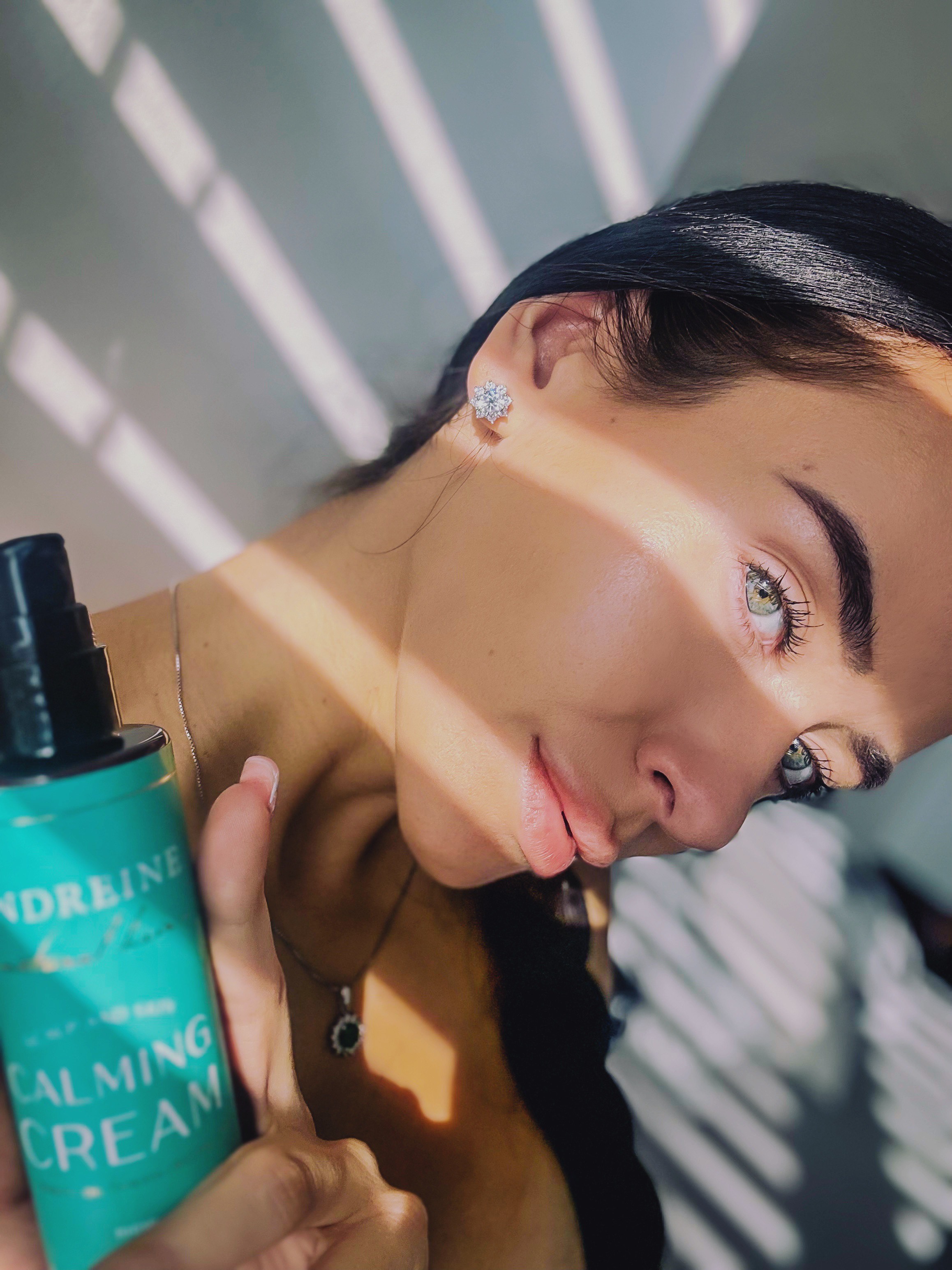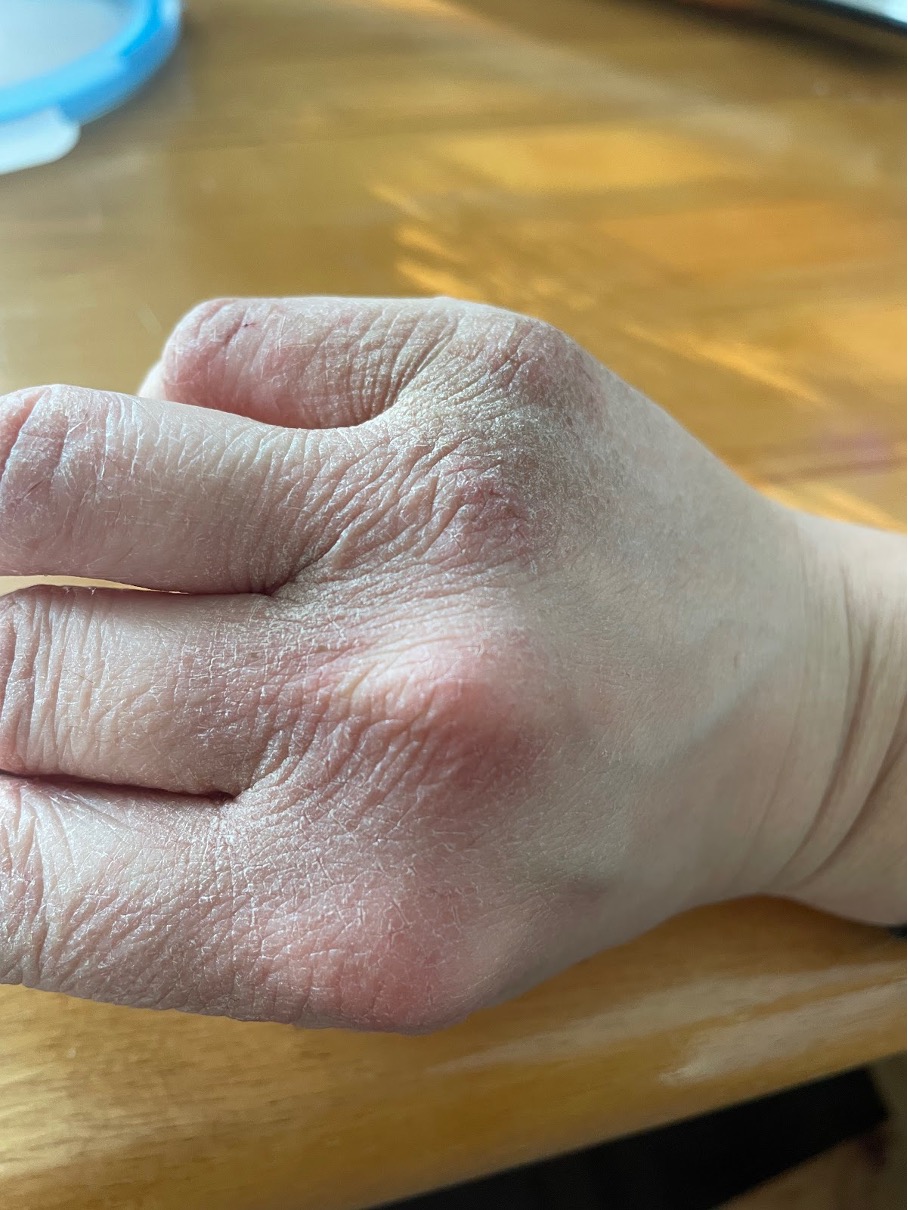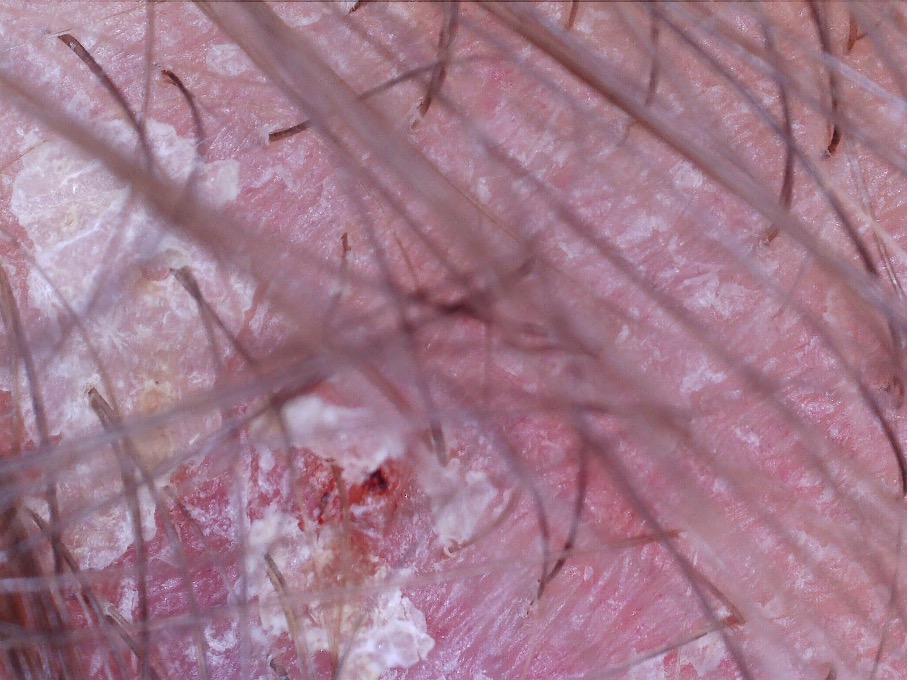How to deal with atopic eczema (not only) in the hair

Atopic dermatitis is one of the most common chronic inflammatory diseases with very unpleasant symptoms. It can make life miserable for both children and adults, affecting approximately 2–3% of the adult population.
Why does atopic dermatitis occur in the first place?
The exact cause of atopic dermatitis is not entirely clear, but several factors are thought to contribute to it:
- Genetic predisposition: research suggests that there is a family tendency towards atopic diseases (atopic dermatitis, asthma and hay fever). If one or both parents have atopic dermatitis, their offspring are more likely to be predisposed to the disease.
- Skin barrier disorder: the skin of patients with atopic dermatitis often has a compromised protective barrier that normally retains moisture and protects against external factors. This disruption of the barrier can allow allergens and irritants to better penetrate the skin, leading to inflammation.
- Immune reactions and allergens: atopic dermatitis is often associated with an excessive immune reaction of the body to certain substances such as food allergens, dust mites, pollens, animal hair, etc. This overreaction can cause inflammation of the skin and symptoms of atopic dermatitis.
- Environmental factors: external factors such as dry air, cold weather, heat irritation, sweat, household chemicals and stress can trigger or worsen the symptoms of atopic dermatitis.
- Psychological factors: Stress, anxiety and other psychological factors can play a role in the onset and worsening of atopic eczema symptoms, in which case we are already talking about neurodermatitis. Constant scratching of the skin can be a stress response and can create a vicious cycle where itching and stress exacerbate each other.
How does atopic eczema manifest itself?
There are two phases in the manifestation of atopic eczema:
- The flare-up phase: severe eczema.
- Resting phase: the skin is symptom-free
In the flare-up phase, inflammatory foci form when the skin is thickened, cracked, reddened. Most often occurs in the elbow and knee sockets, shoulders, neck, face, nape of the neck. The manifestations and intensity of symptoms can vary considerably.
It usually manifests itself as follows:
- dry skin
- itching
- patches on the skin
- wetting
- cracked and scaly skin
- red deposits on the skin of the hands, feet, ankles, wrists, neck, chest, eyelids, elbow and knee creases, face and scalp
Frequent scratching of the skin can cause injury, irritation and possibly infection.

If you've found yourself in any of these phrases, or have been diagnosed with atopic eczema directly, you've come to the right place. This autoimmune disease can often make our lives difficult and complicated. Not only with the constant itching and scratching of sore spots, but also with uncomfortable dry patches on the skin, even wet scabs and constantly dry, flaky skin. It can also have a big impact on our mental wellbeing, self-esteem and how we feel on any given day.
How can trichology help?
Eczema on the scalp shows similar symptoms to those on other parts of the body. By visiting a trichologist and having your scalp diagnosed, we can find out if you are actually suffering from this particular problem or if it is something else. Together, we will also go over your entire home care routine – because it is the foundation for success. Using chemical cosmetics for skin problems can cause even more skin irritation and lead to worsening skin problems.
We recommend:
- moisturise your skin regularly
- soothe the skin with our Infusion Tonic or Hair Growth Tonic
- wash your hair (and therefore your skin) after every workout or sporting activity – don't leave sweat on it, but always wash it thoroughly and gently at the same time
- deep cleanse several times a year to remove as much build-up on the skin as possible, while providing your skin with a feeling of relief, cooling and soothing

This is what a scalp affected by eczema looks like under a trichology camera.
At Hairtherapy salons, we don't just focus on hair and scalp, but also on the health and vitality of the whole body. Skin and auto-immune diseases are largely down to our inner workings – whether it be the diet we take in, but also our mental wellbeing and stress factors, the amount of sleep we get and our drinking regime. If you want to learn more about the factors that affect our gut, read the article on our website How does stress, diet and sleep affect hair?
Treat eczema with corticosteroids?
Atopic eczema is usually treated externally, with hormone ointments containing corticosteroids. While these quickly regenerate the skin for any problem, they also thin and weaken it, unfortunately irreversibly.
Corticosteroids can only be prescribed by a doctor and should only be used in really critical cases and only for a short time, as they have many side effects. Therefore, we do not recommend the use of corticosteroids for skin problems. Every time the problem comes back, it is worse than before. The manifestations of itching can be relieved with natural oils and creams that thoroughly moisturize the dried and reddened skin without any aggressive influences and effects. Calming Cream is one of them.
How to care for atopic skin?
If you suffer from any chronic disease, you should monitor your body and look out for triggers that can reduce the risk of flare-ups and symptoms.
Typical dermatitis triggers:
- foods containing allergens
- polluted and dusty environment
- temperature, cold, low humidity, UV rays and more – watch yourself
- mold and harmful bacteria in the home environment
- pet hair
- tree and grass pollen
- disturbance of hormonal balance
- certain cosmetic products certain plants (needles, ivy, grass, weeds)
- perfumes
- certain types of fabrics (wool)
What is the most effective treatment for eczema?
The most effective treatment for atopic eczema is, of course, one that does not put a strain on our health. That is why we turn our attention to natural treatments and natural cosmetic products which – unlike various chemically processed drugs and products – have no negative effects on the functioning of our organism.
If you would like to consult with experts in the field of trichology or solve your problem immediately, do not hesitate to contact us and we will be happy to help you!
